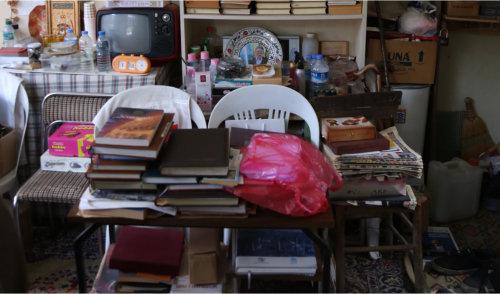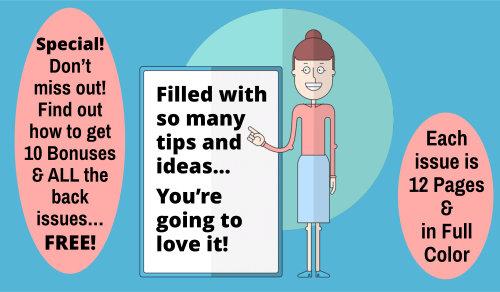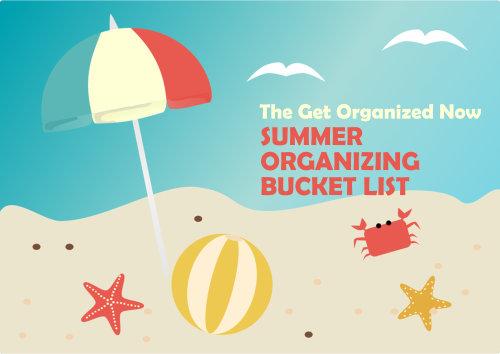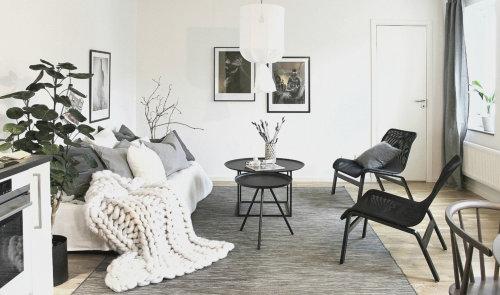In a world where minimalism is often touted as the key to a clear mind, the phrase "a
cluttered space equals a cluttered mind" resonates with many. But what does science say about the psychological impact of clutter? Let's delve into the intricate relationship between our physical surroundings and mental well-being.
Understanding Clutter
Clutter refers to things we don't use and/or love; a collection of items that are disorganized and overwhelming making a space difficult to navigate and aesthetically unpleasing.
While occasionally having a few items out of place is
something most of us all have from time to time, consistent clutter can become a significant source of stress and anxiety. This is not just an issue of aesthetics; it's a matter that touches the core of our psychological state.
The Cognitive Impact
Mental Overload
A cluttered environment bombards the mind with excessive stimuli, forcing the brain to process more information than it can handle comfortably. This sensory overload can reduce the ability to focus and complete tasks efficiently. When surrounded by clutter, the brain’s
resources are spread thin, leading to decreased productivity and increased feelings of frustration.
Decision Fatigue
Every item in a cluttered space represents a decision to be made—whether to keep it, where to put it, or how to manage it.
This constant decision-making process can lead to decision fatigue, a psychological phenomenon where the ability to make decisions deteriorates after a prolonged period of decision-making. This can result in poorer choices and an overall sense of mental exhaustion.
Emotional
Consequences
Stress and Anxiety
Numerous studies have shown a direct correlation between clutter and elevated levels of stress and anxiety. A study conducted by UCLA’s Center on Everyday Lives and Families found that high levels
of clutter in a home environment were linked to increased levels of the stress hormone cortisol, particularly in women. This chronic stress can have far-reaching effects on overall health, including impairing immune function and increasing the risk of chronic diseases.
Guilt and Shame
Clutter often carries emotional baggage. Many people feel guilty for allowing their space to become cluttered, which can spiral into feelings of shame and inadequacy. This emotional burden can create a negative feedback loop, where the guilt and shame associated with clutter make it even harder to tackle the mess, perpetuating the cycle.
Social Implications
Embarrassment and Isolation
A cluttered home can be a source of embarrassment, leading individuals to avoid
inviting friends or family over. This can result in social isolation and loneliness...significant risk factors for mental health issues such as depression and anxiety. The social stigma attached to a messy environment can further exacerbate these feelings, making it a vicious cycle.
Impact on
Relationships
Clutter can also strain relationships, especially among those living together. Disagreements about cleanliness and organization are common sources of tension in households. This can lead to conflicts and affect the harmony of relationships, whether between roommates, partners, or family members.
The Path to a Clutter-Free Mind
Decluttering and Mental Health
Decluttering has been shown to have positive effects on mental health. The act
of organizing and getting rid of unnecessary items can provide a sense of accomplishment and control. It can also reduce the cognitive load, making it easier to focus and think clearly.
Here are 6 strategies to tackle clutter and improve
mental well-being:
1. Start Small: Begin with a small area, like a desk or a single drawer, to avoid feeling overwhelmed.
2. Set Realistic
Goals: Break the task into manageable chunks and set achievable goals.
3. Create a System: Develop an organization system that works for you, ensuring that every item has a designated place.
4. Regular Maintenance: Make decluttering a regular habit to prevent clutter from accumulating again.
5. Mindfulness: Practice mindfulness and be intentional about the items you allow into your space.
6. Know "how" to get rid of clutter effectively: My Goodbye Clutter resource will guide you on your decluttering journey.The psychology of clutter reveals a profound connection between our physical environment and mental state. By understanding the impact of a messy environment, we can take proactive steps to create a space that fosters mental clarity
and emotional well-being.
Decluttering is more than just a physical act; it’s a psychological journey toward a healthier, more balanced life.












